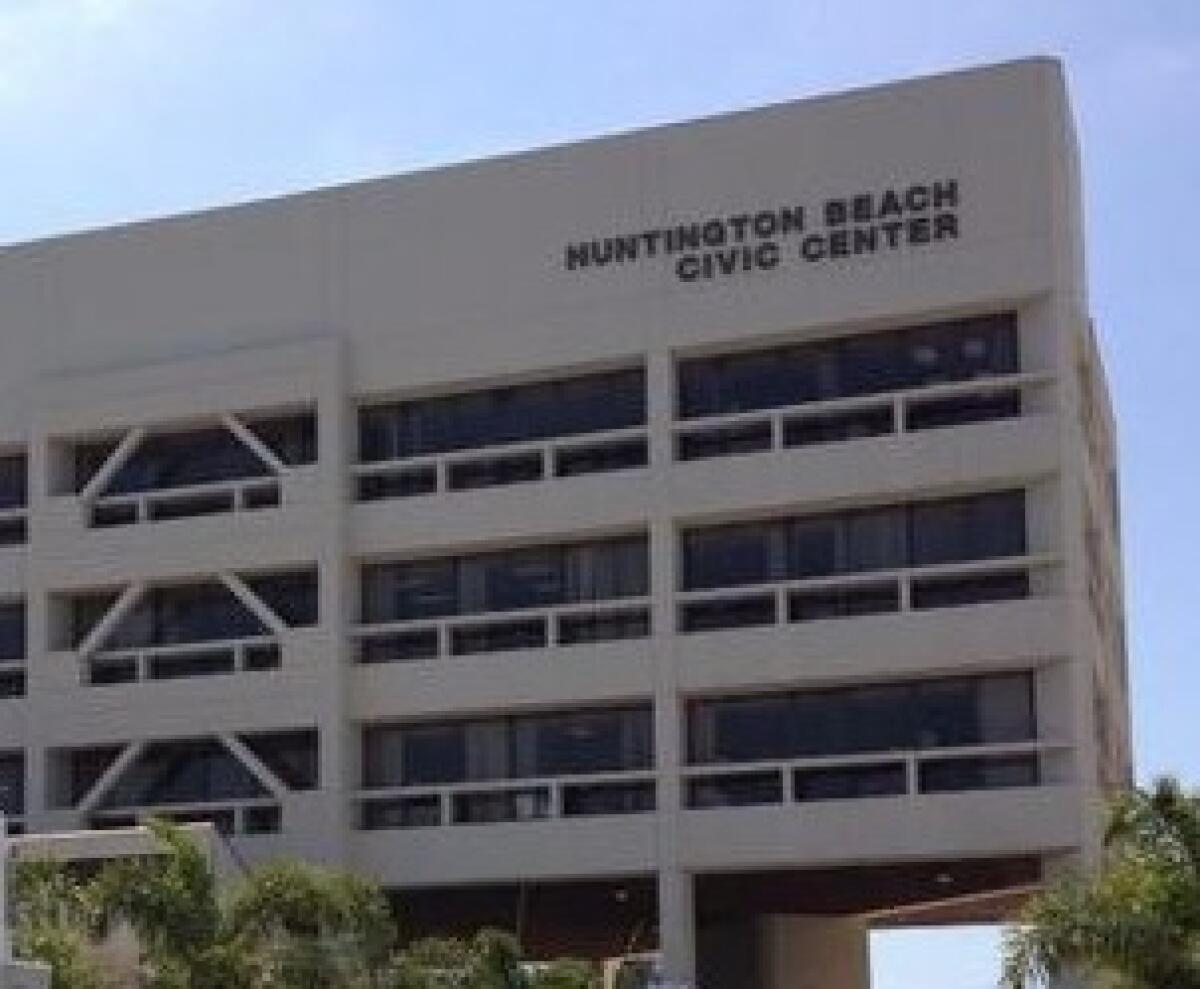H.B. will move forward on refinancing $436 million in pension debt

- Share via
Huntington Beach city staff will move forward on refinancing $436 million in public employee pension debt after the City Council approved a resolution to consider pension bonds.
The council voted 6-1 on Monday night to approve a resolution and trust agreement allowing staff to proceed. The matter will go through a review process and return to the council early next year.
“The greatest long-term fiscal challenge here in Huntington Beach is related to pension funding cost,” City Manager Oliver Chi said.
The move is aimed at getting hold of swelling payments to cover a $436-million unfunded liability to the California Public Employees’ Retirement System, which is treated like a variable-interest loan. The rate — currently 7% — is set to increase over the next 10 years.
An unfunded liability is the difference between money CalPERS has on hand for Huntington Beach — $913.96 million — and what’s been promised to retirees — $1.35 billion. The deficit is created when invested funds don’t reach anticipated returns.
Councilman Mike Posey cast the dissenting vote, saying, “I cannot find any scholarly white paper that says pension bonds are a good idea.”
Posey called the returns on investment generated by CalPERS “embarrassingly, dangerously and irresponsibly low” and strongly objected to the approach to curb swelling debt payments by shifting the city’s debt elsewhere.
In 1999, the state’s retirement fund was 128% funded, Chi said. But then-Gov. Gray Davis signed into law Senate Bill 400, which ushered in “enhanced benefits” for many state employees and ultimately led to a massive pension gap, Chi said.
Local cities are set to dedicate millions of dollars more per year on top of already-determined payments to try to bring down unfunded employee pension liabilities that are running up to seven times higher than a decade ago.
The city’s 2018-19 cost just to cover the liability reached $24.9 million — 55% of the total $45 million in contributions to pension costs by the city and its employees.
The yearly deficit payment was $4.5 million 10 years ago, Chi said, but by 2030, the city will need to be paying an additional $21.09 million to stay on top of escalating costs associated with the loan.
The extra cost would be more than the combined budgets of the city’s library, community services and IT departments, or the equivalent of cutting the Police Department staff by more than a quarter, Chi said.
“Cuts seem very Draconian, and tax increases aren’t something we are ready to recommend at the staff level if there is another way,” he said.
Councilwoman Kim Carr said “CalPERS won’t let us negotiate that 7%” and “we have an opportunity now” to halve the interest rate by refinancing through pension bonds and pay off the debt in the same time frame, 24 years.
“It’s a no-brainer,” Carr said. “I don’t believe that any one of us wants to go back to our residents and ask for a sales tax increase to cover the shortfall.”
Mayor Pro Tem Lyn Semeta said, “At this point, I am supportive, but I want to continue to stay on top and make sure this makes sense.”
However, Posey said that “to rush this through at the peak of the stock market … is not smart,” pointing to the “possibility that PERS actually makes money.”
Swiftly changing economic forecasts are “part of the reason we’ve accelerated the timetable” for the process, which takes 90 days, Chi said. “In 90 days the market will look different,” he added.
“I don’t think the stock market is going to continue to grow, grow, grow, grow,” said Councilwoman Jill Hardy. “We need to look at the reality of right now.”
Posey said he’s an optimist. “The time to do this is when the stock market is tanking or at the bottom,” he said.
All the latest on Orange County from Orange County.
Get our free TimesOC newsletter.
You may occasionally receive promotional content from the Daily Pilot.









